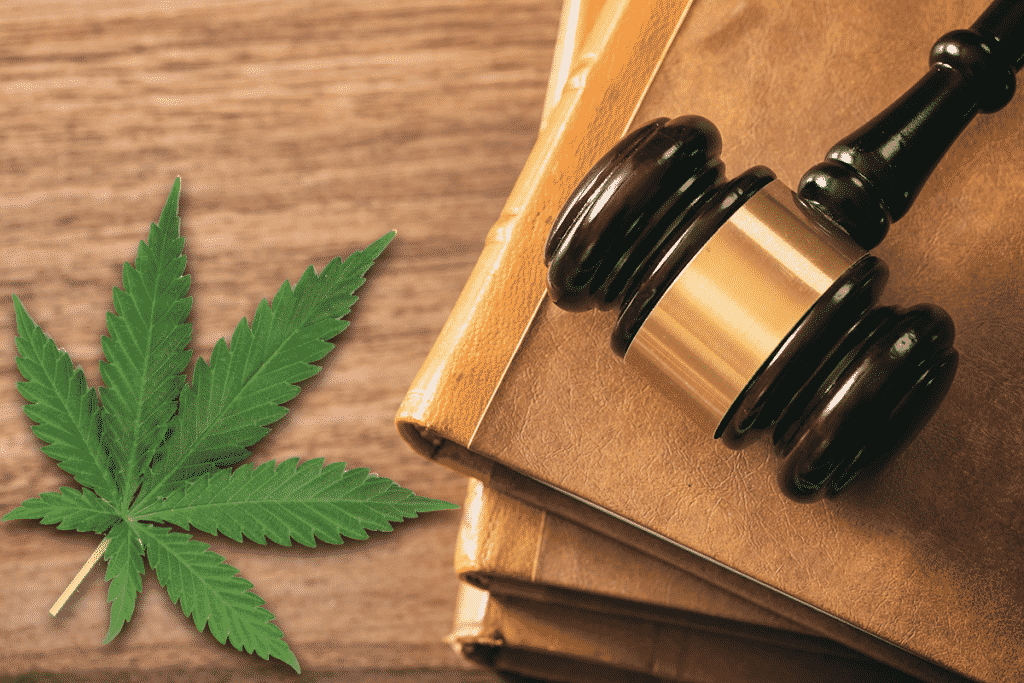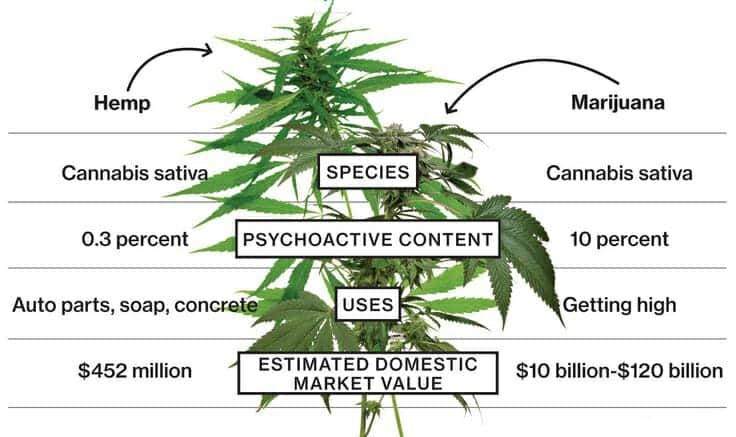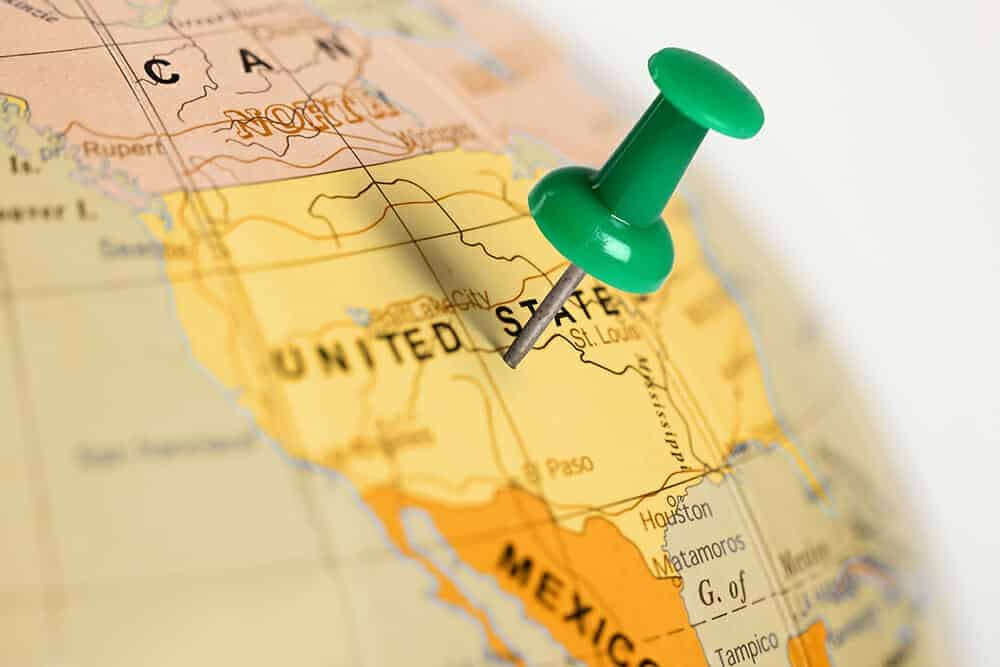
Important Notice: Please note that this article is republished from our website CBDOrigin.com. For the latest and most current version of this article, as well as to use our “CBD Law Finder” tool, please view this article directly here: https://cbdorigin.com/is-cbd-legal/
Last year (2018) was filled with progress and accomplishments, but as 2019 is now well underway, the big question still remains amongst many individuals: Is CBD legal?
The short answer: Yes, CBD is legal, but… under very specific conditions.
While the legal status of CBD has become more defined with recent reforms, some laws are still unclear and others may still be needed. Combined with misinformation, many may have a very skewed understanding of what’s legal versus what isn’t.
If you’re unsure about the legality of CBD, read our 2019 guide to learn about the latest CBD laws and make sure you’re enjoying the benefits of CBD, safely and legally.
Is CBD legal in all 50 states? It depends.
The legality of CBD can vary from state to state and federally, but in general, one of the determining factors is whether the CBD is derived from hemp or marijuana.
While the two plants are very close relatives, they are classified verydifferently under the law and understanding the difference is crucial to legally use CBD.
Hemp and marijuana are both classifications of plants in the Cannabis genus, and both can produce an abundance of CBD.
As members of the same family, hemp and marijuana share many visual similarities, but at a chemical level, the two plants have vastly different amounts of Tetrahydrocannabinol (THC), the intoxicating compound found in Cannabis.
While hemp is characterized by producing a nearly non-existent amount of THC (less than 0.3%), marijuana can produce an abundance of THC (up to 30%). Because of its high THC-content, marijuana may induce severe mind-altering effects when consumed and is federally illegal in the United States and many other countries.
Now that we’ve discussed the legality of the two primary sources of CBD, let’s explore the laws of CBD derived from hemp versus CBD derived from marijuana, and how the laws vary from state to state.

Quick answer: Hemp-derived CBD is legal as long as it is produced within the regulations defined by the law.
In 2018, President Trump passed the Agricultural Improvement Act of 2018(also known as the 2018 Farm Bill), which removed hemp as a Schedule I substance and reclassified it as an “agricultural commodity.”
A common misconception about the 2018 Farm Bill is that it legalized CBD regardless of if it was derived from hemp or marijuana. This is not true.
Based on the guidance of the DEA, CBD is a Schedule I substance and is illegal.
If, however, the CBD is derived from hemp and adheres to the following regulations set forth in the new farm bill, it is removed as a Schedule I substance and is legal:
In addition, the 2018 Farm Bill also removed restrictions on the sale, transportation, and possession of hemp-derived CBD products and allowed for the transportation of hemp-derived CBD products across state lines as long as the products follow regulations defined above.

While hemp-derived CBD is federally as long as it adheres to the law, marijuana-derived CBD is a bit more complicated because it is derived from a plant that is illegal.
In some states, such as California and Colorado, marijuana is legal for recreational usage, and naturally so is marijuana-derived CBD. Others allow marijuana-derived CBD usage under certain conditions, such as a specific medical condition, and some states strictly prohibit it.
Continue below for a detailed list of which states allow marijuana-derived CBD for recreational use or medicinal use, and the states that strictly prohibit it.
As of 2019, there are 10 States where Cannabis, including both marijuana and hemp, are completely legal for recreational and medicinal use. These states are Alaska, California, Colorado, Maine, Massachusetts, Michigan, Nevada, Oregon, Vermont, and Washington. If you find yourself in one of these wonderful states, you would be completely within your legal rights to use CBD.
In any case, we still strongly recommend consulting with your doctor or a certified health professional to ensure CBD is safe for you to use.
As of 2019, there are a total of 47 states (including the 8 states mentioned above) where marijuana-derived CBD is legal for medicinal usage.
The specific regulations for such use vary from state to state with a majority of states allowing medicinal use for a broad range of conditions, while others set specific requirements for approved use (ie, the CBD must contain less than a certain percentage of THC or the patient suffers from a specific condition).
States with regulations that permit the use of marijuana-derived CBD for a broad range of conditions include Alaska, Arizona, Arkansas, California, Colorado, Connecticut, Delaware, Florida, Hawaii, Illinois, Maine, Maryland, Massachusetts, Michigan, Minnesota, Montana, Nevada, New Hampshire, New Jersey, New Mexico, New York, North Dakota, Ohio, Oregon, Pennsylvania, Rhode Island, Vermont, Washington and West Virginia.
States with regulations that permit the use of marijuana-derived CBD under certain circumstances include Alabama, Georgia, Indiana, Iowa, Kentucky, Mississippi, Missouri, North Carolina, Oklahoma, South Carolina, Tennessee, Texas, Utah, Virginia, Wisconsin, and Wyoming.
Please note that the regulations for a majority, if not all, of these states, do require patients to obtain a medical marijuana card in order to legally consume marijuana-derived CBD. The requirements to obtain a medical marijuana card in each of these states will vary depending on the regulations of each state.
For further information about the specific regulations for each state, you can locate the latest legislation for each state by using our CBD law finder at the bottom of this page.
The specific requirements for an individual to use marijuana-derived CBD will vary from state to state. Before purchasing CBD in any of these states, we highly advise you to do additional research and consult a lawyer if necessary. Use our easy CBD law finder below to review the latest legislation that we have gathered for each state.
Both hemp-derived and marijuana-derived CBD are legal at varying levels in a majority of the United States; however, there are certain states where marijuana-derived CBD is strictly prohibited and even hemp-derived CBD is a bit of a gray area. There are currently three (3) states that have taken a strong stance against CBD in the US: Idaho, Nebraska, and South Dakota.
If you live in one of these states, it is highly advised to proceed with extreme caution. While some businesses do sell CBD products in these states, the sale, possession, or use of CBD is very risky.
Legal Disclaimer: The information contained on this page is based entirely on independent research. While our team strives to provide the most accurate and current information by carefully reviewing relevant data from actual legislation and other credible resources, we are not lawyers or legal experts and this information should not be interpreted as legal advice. The information on this page was created to entertain and engage our readers and should not be used for any other purpose. For your safety, protection, and well-being, we strongly advise that you do not use this information to make any decision or take any action and strongly encourage you to seek legal counsel before taking any action related to Cannabidiol (CBD).